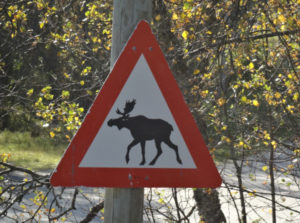How can research be conducted in “true collaboration” with Indigenous rights holders? This was a central question discussed at the 18th Arctic Dialogue on 8 December 2021.

Inclusive, transdisciplinary knowledge generation is challenging – in the Arctic and beyond. At the same time, if being considered in policymaking, this knowledge is a (if not the) central lever to reduce the effects of the global climate catastrophe. On 8 December the German Arctic Office and the Institute for Advanced Sustainability Studies hosted together the 18th Arctic Dialogue. This time, the dialogue concentrated on the question how research can be conducted in “true collaboration” with Indigenous rights holders that experience and document changes in the Arctic for centuries.
In a panel discussion, representatives of the Saami who also live in the European Arctic, emphasised that trust and equal exchange are crucial for combining Indigenous knowledge systems and “western” knowledge. True interest on how to cope with shared challenges and respect were presented as basis for successful collaboration and knowledge co-creation. Particularly in view of current challenges, the panel stressed the need to combine the best available knowledges to inform policymaking. In this way, Indigenous knowledges are peer-reviewed, transferred from generation to generation and essential for understanding the situation in the Arctic. The panellists further argued that including Indigenous knowledges would support a rights-based approach and increase the relevance of results for the communities involved. Still often, however, Indigenous researchers have the impression not being treated as equal academics and just being consulted for ethical reasons. That is why, it is important to collaborate from the beginning of a research project, to develop research questions jointly and to develop research structures that facilitate transdisciplinary knowledge generation and the recognition of Indigenous knowledges.
This also applies to research conducted at the German Development Institute / Deutsches Institut für Entwicklungspolitik (DIE), which now is an official member of the Arctic Dialogue and was also welcomed as such during this 18th Arctic Dialogue at which Jacqueline Götze and Dr. Dorothea Wehrmann also presented DIE’s research approach and the DFG-funded Arctic project „Sustainable Urban Development in the European Arctic (SUDEA)“. The Arctic Dialogue takes place twice a year and is organised by the German Arctic Office (based at the Alfred-Wegener-Institute Helmholtz Centre for Polar and Marine Research). It seeks to facilitate exchanges between researchers and practitioners focusing on the Arctic. In addition to reports from new members and German Federal ministries (Federal Foreign Office, Federal Ministry for the Environment, Nature Conservation and Nuclear Safety, Federal Ministry of Defence, Federal Ministry of Education and Research, Federal Ministry of Transport and Digital Infrastructure), the forum thus usually discusses current issues of relevance for researchers and policy makers in Germany.

Schreibe einen Kommentar